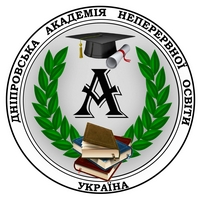TEACHER'S VOICE AS AN EDUCATIONAL RESOURCE IN PEDAGOGICAL AND SOCIAL ASPECTS
Abstract
The article deals with voice as an educational resource of a teacher in pedagogical and social aspects. In the first part of the article, based on the analysis of scientific and pedagogical literature, the main requirements for the teacher's voice are highlighted, and recommendations for voice preservation are introduced, since about 50% of the teacher's working time is spent directly on the active work of the vocal apparatus. The article also presents the results of the role of teacher's voice tone in pedagogical practice conducted in 2022 by researchers from the Universities of Essex and Reading, who found that teacher's voice tone can change the psycho-emotional state in the classroom. According to the study, a tone that supports students' autonomy and increases their level of activity proved to be favorable for learning. The second part of the article discusses the social aspect of the teacher's voice. In this regard, the authors refer to the scientific works of representatives of such an alternative educational direction as critical pedagogy (P. Freire, G. Giroux, J. Winks, P. McLaren). The position of the Canadian American scholar P. McLaren is analyzed, that illustrates the two types of power with which the voice of the teacher is associated: despotic power, when the teacher's voice subordinates the experience and beliefs of students, and democratic power, which gives the student's voice the opportunity to express themselves, to declare their values and beliefs. The opinion of another representative of this field, J. Winks, is described. The researcher notes that our voices are important in pedagogical practice because they express what we have come through and experienced in life. In this regard, three aspects have been identified as crucial to the formation of a teacher's voice: political relations of power, the inner voice of personal pedagogical experience, and public policy. The conclusions note that the teacher's voice acts not only as an educational resource, but also as an instrument of social change. The teacher's voice can bring the discourse of freedom to the pedagogical process. The teacher's voice is not only subject to public policy, but is also an important tool in its implementation – in particular, in patriotic education, in shaping the culture of thinking and affirming democratic values.
References
2. Кайдалова Л. Г., Щокіна Н. Б., Вахрушева Т. Ю. Педагогічна майстерність викладача: навч. посіб. Харків: НФаУ, 2009. 140 с.
3. Перетяга Л. Є. Голосова культура вчителя. Педагогіка формування творчої особистості у вищій і загальноосвітній школах. 2012. Т. 76. С. 281–288. URL: http://pedagogy-journal.kpu.zp.ua/archive/2012/23/42.pdf (дата звернення: 28.02.2024).
4. Савенкова Л. О. Мовленнєва діяльність викладача: навч. посіб. Київ: КНЕУ, 2006. 192 c.
5. Семенова А. В., Мельник С. М. Мистецтвο мοвлення сучаснοгο педагοга: навч. посіб. Одеса: Бондаренко М. О., 2020. 308 с.
6. Флегонтова Н. М. Комунікативна культура викладача вищого навчального закладу як компонент педагогічної майстерності. Учитель мистецьких дисциплін у дискурсі педагогічної майстерності: монографія / за наук. ред., передм. і післямова О. М. Отич. Бердянськ: Ткачук О. В., 2013. С. 147–158.
7. Becerra Camargo, C. Y. Teacher Voice: how is it shaped? Colombian Applied Linguistics Journal. 2005. № 7. Р. 43–52.
8. Giroux H. Lessons to be learned from Paulo Freire as education is being taken over by the mega rich. Truthout, 23.11.2010. URL: https://truthout.org/articles/lessons-to-be-learned-from-paulo-freire-as-education-is-being-taken-over-by-the-mega-rich/ (дата звернення: 28.02.2024).
9. McLaren P. Life in Schools. An introduction to Critical Pedagogy in the Foundations of Education. Boston / London: Allyn And Bacon, 2002. 318 р.
10. Paulmann, Silke & Weinstein, Netta. Teachers' motivational prosody: A preregistered experimental test of children's reactions to tone of voice used by teachers. The British journal of educational psychology. 2022. № 93. Р. 437–452. URL: https://bpspsychub.onlinelibrary.wiley.com/doi/10.1111/bjep.12567 (дата звернення: 26.02.2024).
11. Pennycook A. Critical Applied Linguistics: A Critical Introduction. New Jersey: Lawrence Erlbaum Associates, 2001. 224 р.
12. Shor І & Freire P. A Pedagogy of Liberation. Dialogues on Transforming Education. Massachusetts: Bergin & Garvey Publishers, 1987. 203 р.
13. Wink J. Critical Pedagogy. Notes from the Real World. New York: Addison Wesley Longman, 2000. 194 р.

 ISSN
ISSN  ISSN
ISSN 

